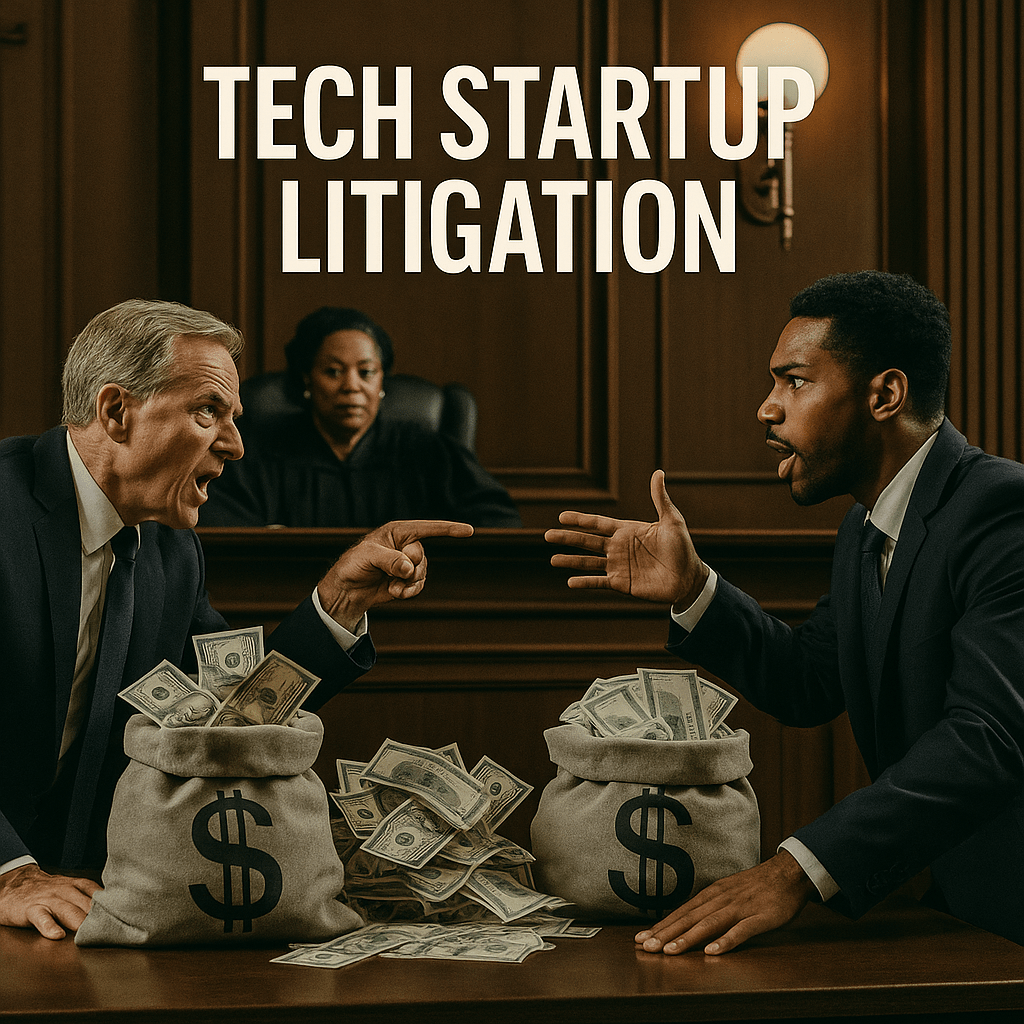In California and beyond, tech startup litigation is a growing concern among venture-backed companies, particularly as startups scale and their ownership structure becomes more complex. One of the most common sources of litigation involves alleged breaches of fiduciary duty between founders, or between founders and investors. These disputes can quickly escalate into lawsuits, destroy team chemistry, scare away future investors, and even result in loss of corporate control.
What Is a Fiduciary Duty in a Tech Startup?
A fiduciary duty is a legal obligation that arises when one party is in a position of trust and confidence with respect to another. In the context of a technology startup, founders who serve as officers or directors of the corporation owe fiduciary duties to the company and its shareholders. These duties include:
- The duty of loyalty: avoiding self-dealing or conflicts of interest.
- The duty of care: making informed, responsible decisions.
- The duty of good faith and fair dealing.
These legal obligations are not theoretical. Courts in California have consistently enforced fiduciary standards in corporate governance matters, especially when founders take actions that benefit themselves at the expense of the company or other shareholders.
How Tech Startup Litigation Typically Arises
Litigation between founders and investors often stems from unclear agreements, missing bylaws, or failure to maintain corporate formalities. Disputes may also arise when a founder:
- Transfers intellectual property to themselves or a third party without board consent
- Locks other co-founders out of corporate decision-making
- Refuses to issue or recognize stock grants or vesting schedules
- Spends company funds on unauthorized ventures or personal expenses
- Unilaterally raises capital or enters into major contracts
These actions, even if not malicious, can lead to claims for breach of fiduciary duty, unjust enrichment, or even fraud, especially in the eyes of institutional investors.
Do Startup Founders Owe Duties to One Another?
While founders may not automatically owe fiduciary duties to each other purely by virtue of co-founding a company, they often do once they take on formal roles such as CEO, board member, or officer. Moreover, courts may find de facto fiduciary duties where co-founders operate as partners, especially in early-stage ventures before formal incorporation.
The risk increases significantly if a founder is managing day-to-day operations, handling company finances, or negotiating investor deals. This is why early-stage startups should formalize their relationships, cap tables, vesting schedules, and bylaws as soon as possible.
 Can Investors Sue for Breach of Fiduciary Duty?
Can Investors Sue for Breach of Fiduciary Duty?
Yes. Investors, particularly those who acquire preferred shares or board seats, have standing to sue founders who breach fiduciary duties owed to the corporation. This can happen when founders dilute early investors without justification, hide material information, or misappropriate funds.
Some claims arise even before any fraud occurs. For example, if a startup is raising a new round but one founder refuses to cooperate with the process or disclose accurate financials, this can expose the company to liability and chill the investment opportunity.
Preventing Litigation Through Legal Infrastructure
Startups that invest in legal infrastructure early are far more likely to avoid litigation. This includes:
- Incorporating in Delaware or California with well-drafted bylaws and stock issuance documents
- Drafting clear founder agreements with IP assignment, equity splits, and vesting
- Creating robust corporate governance protocols and meeting records
- Maintaining clean capitalization tables and investor rights documents
- Conducting routine legal check-ins during growth or fundraising
We covered many of these steps in previous LATML blogs such as Startup Equity Split and Startup Attorney Timing, both of which highlight when and how to build a legally defensible foundation.
When to Call a Startup Litigation Attorney
If you suspect a co-founder is mismanaging the company, misappropriating funds, or blocking legitimate board decisions, it’s critical to get legal advice immediately. The longer you wait, the harder it may be to enforce your rights, especially if documentation is lacking or corporate formalities were neglected.
Whether you are an angel investor, a majority shareholder, or a founder worried about internal disputes, a litigation-minded startup attorney can assess the situation and help structure your next steps. Often, the goal is to resolve disputes quickly and quietly, without resorting to public litigation unless absolutely necessary.
If your technology startup is facing internal disputes or you’re preparing for your next round of funding, it’s essential to assess whether your legal structure can withstand scrutiny. Schedule your confidential consultation now by visiting L.A. Tech and Media Law Firm or using our secure contact form.
David Nima Sharifi, Esq., founder of the L.A. Tech and Media Law Firm, is a nationally recognized IP and technology attorney with decades of experience in M&A transactions, startup structuring, and high-stakes intellectual property protection, focused on digital assets and tech innovation. Quoted in the Wall Street Journal and recognized among the Top 30 New Media and E-Commerce Attorneys by the Los Angeles Business Journal, David regularly advises founders, investors, and acquirers on the legal infrastructure of innovation.
Schedule your confidential consultation now by visiting L.A. Tech and Media Law Firm or using our secure contact form.



